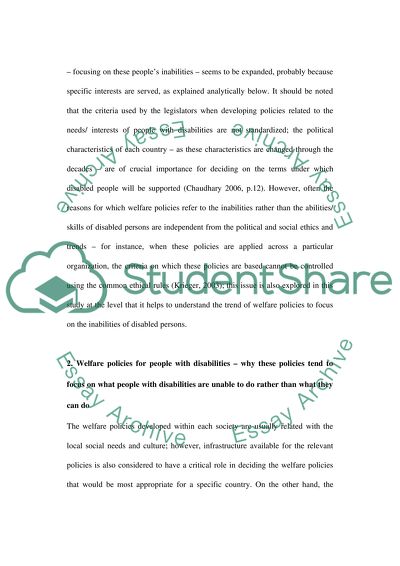Cite this document
(“Welfare policies in relation to people with disabilities tend to focus Essay”, n.d.)
Retrieved from https://studentshare.org/environmental-studies/1407211-welfare-policies-in-relation-to-people-with-disabilities-tend-to-focus-on-what-people-with-disabilities-are-unable-to-do-rather-than-what-they-can-do
Retrieved from https://studentshare.org/environmental-studies/1407211-welfare-policies-in-relation-to-people-with-disabilities-tend-to-focus-on-what-people-with-disabilities-are-unable-to-do-rather-than-what-they-can-do
(Welfare Policies in Relation to People With Disabilities Tend to Focus Essay)
https://studentshare.org/environmental-studies/1407211-welfare-policies-in-relation-to-people-with-disabilities-tend-to-focus-on-what-people-with-disabilities-are-unable-to-do-rather-than-what-they-can-do.
https://studentshare.org/environmental-studies/1407211-welfare-policies-in-relation-to-people-with-disabilities-tend-to-focus-on-what-people-with-disabilities-are-unable-to-do-rather-than-what-they-can-do.
“Welfare Policies in Relation to People With Disabilities Tend to Focus Essay”, n.d. https://studentshare.org/environmental-studies/1407211-welfare-policies-in-relation-to-people-with-disabilities-tend-to-focus-on-what-people-with-disabilities-are-unable-to-do-rather-than-what-they-can-do.


